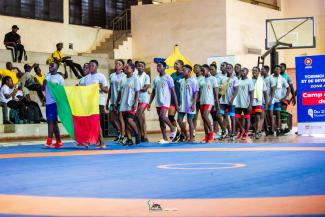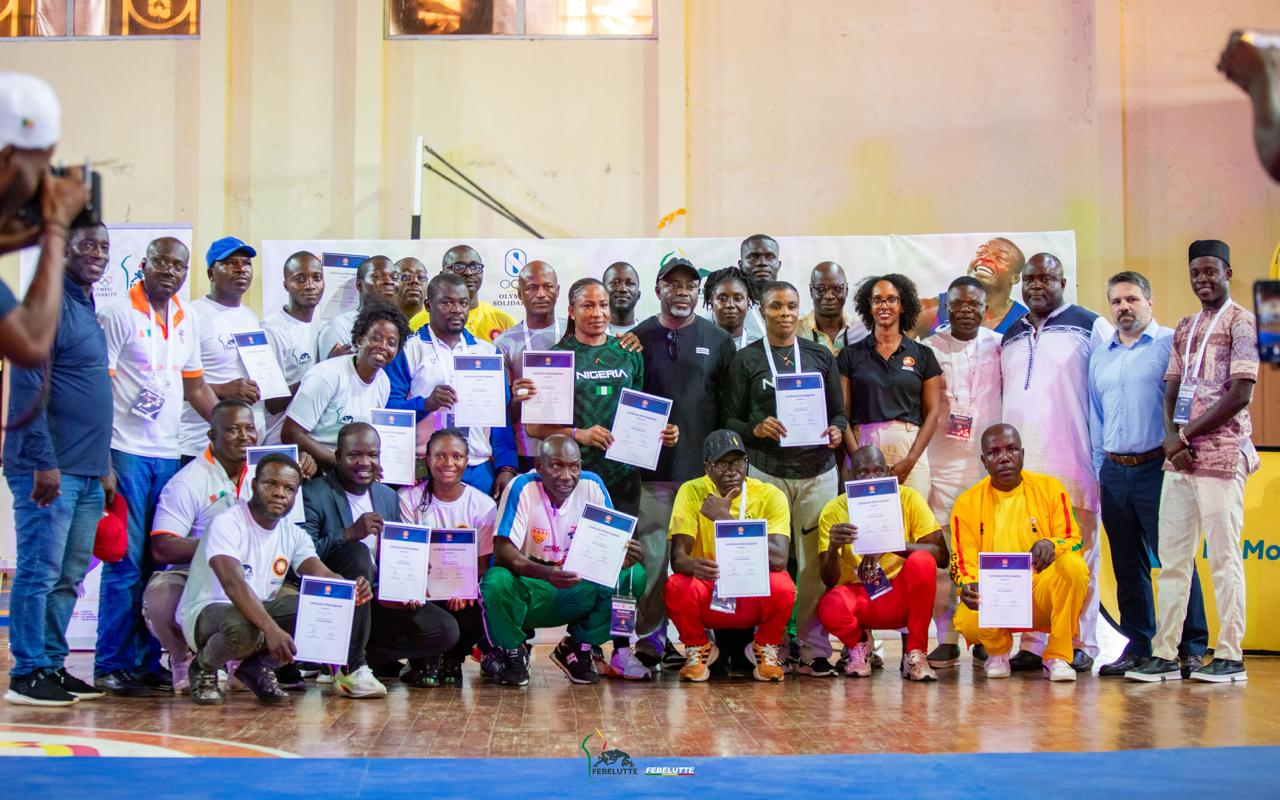Record number attend India's Introduction to Referee Course
Wednesday, November 30, 2022 - 13:37 By United World Wrestling Press

SONEPAT, India (November 30) -- The Wrestling Federation of India (WFI) organized an Introduction to Referee course on November 18-20 in Sonepat. This was the largest-ever course with 96 participants (86 men and 10 women).
“The course was very useful for developing skills and knowledge of the Indian national referees. WFI organizes 25 domestic competitions in a year. After this course, we have enough national referees to conduct these competitions as this group will serve as referees at many of those events,” said Brijbhushan Sharan Singh, WFI President.
This course was led by Carlos GARCIA (ESP) and assisted by Ashok KUMAR (IND). Both are IS Referees and certified UWW Educators.
During the three-day course, the participants concentrated on several areas that are important to the development of referees. After an initial assessment, the main topics were focused on referee mechanics, positioning, referee team duties, and athlete safeguarding.
The morning sessions centered around the theory, mainly through videos or direct examples from their practical sessions. The afternoon sessions were dedicated to practicing on the mat by refereeing short matches. These practical sessions allowed participants to apply what they learned and improve their performance.
“I learned a lot from this course and even things that I did not know about including the latest rules and regulations of the competition. This course was very useful for me, and I really enjoyed this course," Shivaji, a referee, said.
“I would like to thank the Wrestling Federation of India for organizing the course and their hospitality. It is very motivating when you see so much interest and passion which may not be everything, but it gets you to your goals faster. The young Indian referees have a passion that could drive Formula 1 cars at maximum speed," Garcia said.



Share your thoughts.
Comments